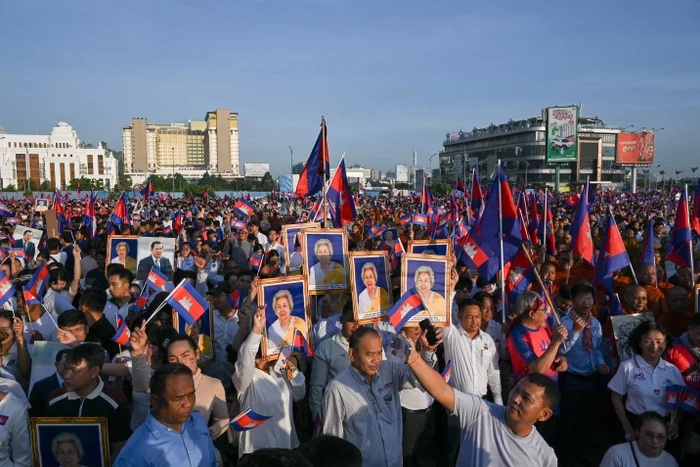Cambodia on Thursday, June 19, announced a ban on fruit and vegetable imports from Thailand, marking a significant escalation in a long-standing border dispute between the two Southeast Asian nations.
The latest move, according to online media reports, adds to a series of retaliatory actions that have flared up since a deadly border clash in May.
Tensions reignited when troops from both countries exchanged gunfire in a contested border area, resulting in the death of a Cambodian soldier.
The skirmish intensified nationalist sentiments on both sides and triggered reciprocal measures from the two governments.
In recent days, Thailand has tightened border controls with Cambodia.
This prompted Phnom Penh to respond with a series of actions.
The actions included banning Thai films from cinemas and television, closing a border crossing, reducing internet bandwidth from Thailand, and limiting visa durations for Thai nationals.
Thailand has implemented similar visa restrictions for Cambodians.
The decision to ban Thai agricultural imports came into effect on Tuesday, following an ultimatum from Cambodia’s former Prime Minister Hun Sen.
Having ruled the country for nearly 40 years before stepping down in 2023 in favor of his son, Hun Sen declared that trade restrictions would be enforced unless Thailand reversed its border measures.
The government’s stance has drawn widespread support within Cambodia.
On Wednesday, tens of thousands of citizens marched through the streets of Phnom Penh, waving national flags and portraits of government leaders in a show of solidarity.
Deputy Prime Minister Hun Many, brother of current Prime Minister Hun Manet, addressed the crowd.
He stated that the march was meant to “encourage and energize” the government and military.
He emphasized the unity of the Cambodian people in times of perceived national threat, declaring, “We will not stand still when our nation is insulted, we will rise with one spirit.”
In a bid to resolve the territorial dispute, Cambodia has once again turned to the International Court of Justice (ICJ), asking it to adjudicate four areas of contested land, including Mom Bei (also known as Chong Bok), where the recent clash occurred. This area lies at the tri-border point between Cambodia, Thailand, and Laos. Cambodia is also asking the court to consider three ancient temple sites within the disputed zone.
Prime Minister Hun Manet reaffirmed Cambodia’s commitment to protecting its borders.
He stated that the government will approach the issue with “strong determination and high responsibility.”
At the same time, he emphasized the country’s desire to maintain peaceful and cooperative relations with Thailand.
The historical roots of the conflict date back to colonial-era border mappings by France, which ruled Cambodia until 1953.
Over the years, these contested boundaries have sparked several nationalistic episodes and periods of violence.
A major flashpoint occurred in 2003, when anti-Thai riots in Phnom Penh resulted in the burning of the Thai embassy and attacks on Thai-owned businesses, triggered by controversial remarks from a Thai celebrity about Cambodia’s ownership of the Angkor Wat temple.
Another violent episode took place in 2011, when fighting near the border left at least 28 people dead and forced tens of thousands to flee their homes.
That same year, Cambodia asked the ICJ to clarify a 1962 ruling which had awarded it ownership of the Preah Vihear temple, an 11th-century Hindu monument.
In 2013, the court confirmed that land adjacent to the temple also belonged to Cambodia.
Despite Cambodia’s current appeal to the ICJ, Thailand has rejected the court’s jurisdiction in this matter.
It has also expressed a preference for resolving the dispute through direct bilateral talks.
Thai Prime Minister Paetongtarn Shinawatra has underscored her government’s commitment to defending national sovereignty and maintaining peace along the border.
She has also criticized what she described as “unprofessional communication”—a likely reference to former Prime Minister Hun Sen’s vocal statements on social media.
While both countries express a desire for peaceful coexistence, the current cycle of provocations and retaliations has raised concerns about the potential for further escalation in the region.







